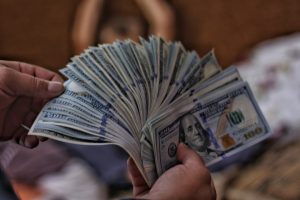The forex market is one of the most fluid and volatile financial markets in the world. It is a decentralized market, meaning that it is not traded on a central exchange but rather through a network of banks and financial institutions. The forex market is open 24 hours a day, five days a week, and trades over $5 trillion in daily volume. But how does the forex market move?
In order to understand how the forex market moves, it is important to first understand the basic concepts of supply and demand. The price of a currency is determined by the supply and demand for that currency in the market. If there is high demand for a currency, its price will increase, and if there is low demand, its price will decrease.
One of the main drivers of supply and demand in the forex market is the interest rate. Interest rates are set by central banks and are used to control inflation and economic growth. When interest rates are high, investors are more likely to invest in that country’s currency, as they will receive a higher return on their investment. This increased demand for the currency will drive up its price. Conversely, when interest rates are low, investors are less likely to invest in that country’s currency, as they will receive a lower return on their investment. This decreased demand for the currency will drive down its price.
Another factor that influences the forex market is the economic data releases. Economic data such as GDP, inflation, and unemployment can have a significant impact on the value of a currency. For example, if a country’s GDP increases, it is a sign that the economy is growing, which will increase demand for that country’s currency. Conversely, if a country’s inflation rate increases, it is a sign that the economy is overheating, which will decrease demand for that country’s currency.
In addition to economic data releases, geopolitical events can also have a significant impact on the forex market. Political instability, natural disasters, and terrorist attacks can all cause investors to flee a country’s currency, which will drive down its price. For example, if there is political instability in a country, investors may be less likely to invest in that country’s currency, as they may fear that their investment will not be safe.
Finally, the forex market is also influenced by technical analysis. Technical analysis is the study of historical price and volume data to identify patterns and trends in the market. Traders use technical analysis to identify potential buy and sell signals, which can help them make more informed trading decisions.
In conclusion, the forex market moves based on a variety of factors, including interest rates, economic data releases, geopolitical events, and technical analysis. Traders who are able to understand and analyze these factors are more likely to be successful in the forex market. However, it is important to remember that the forex market is highly volatile, and traders should always exercise caution and use proper risk management techniques.





